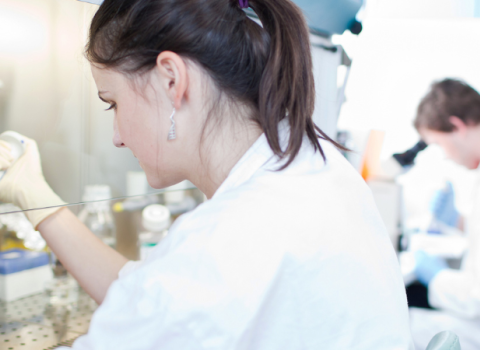Open science has been at the heart of the fight-back against the virus. As other crises loom, this underlines the need for governments to avoid protectionist moves and foster collaborative international research

The COVID-19 pandemic has showcased the power of open global research collaboration and this lesson must live on to help address other pressing global issues, says OECD.
“We sit here, and we say this worked well for an experiment. The question is whether or not we need to scale this up,” said Andrew Wyckoff, director of the OECD's directorate for Science, Technology and Innovation.
During the pandemic, some of the most effective means for coordinating research have been international initiatives, such as the Coalition for Epidemic Preparedness Innovations, which funded initial research on a number of different vaccines. “These platforms have led to culminations we could not have anticipated before,” said Wyckoff.
In an unprecedented global effort, the OECD estimates around $7.5 billion was raised for COVID-19 R&D by the end of last summer, of which around $2 billion was channelled through international initiatives.
While these initiatives were effective in the crisis, many remain underfunded and rely on philanthropic institutions such as the Gates Foundation and the Wellcome Trust, and a handful of countries, for financing. To deal with future pandemics and other pressing issues, such as climate change, governments should provide more support.
The global research effort saw a total of 75,000 scientific papers on the virus published by November, over three quarters of which are open access. The scale of publications is another major achievement underwritten by the openness of COVID-19 research. The rapid response was built on the fact that the genome of the virus was sequenced and the results were instantly made public.
The crisis has been a journey of data, notes Wyckoff. He suggests that going forward, the publication of datasets should be incentivised as much as publishing scientific papers. They should be seen as equal contributions.
In Wyckoff’s view, the role China played in pandemic-related research affirmed the country as a global player. China is now the second largest R&D funder in the world and has been developing closer ties to the US, which was reflected in the COVID-19 co-publication patterns.
This has happened at a time when there is creeping resistance to international collaboration, with more demands for reciprocity, and, said Wyckoff, “what we heard in Europe - a growing cry for technology sovereignty.”
Moves to protectionist policies and increasing demands for reciprocity could endanger international collaboration. To avoid this, governments should work on ensuring a level playing field for scientific cooperation, and building trust. For the US, this also means being more open to China, Wyckoff said.
New challenges
Beyond the pandemic, promoting a transition to more sustainable societies will demand massive research firepower. Drawing on the lessons of the crisis, the OECD says governments should rethink science policies and equip themselves with the right instruments to deliver the transition to greener and more resilient societies.
Open and collaborative research with players from around the globe is one piece of the puzzle. Another is taking a multi-disciplinary approach. Complex problems, such as COVID-19 and the green transition, require inputs from many different areas of research, but current R&D policies around the globe are ill-equipped to support this.
At the same time, the way governments fund research should be rethought too. First, it is not all about the money. There is a different between leveraging mechanisms and “releasing the floodgates of funding,” according to Marjorie Blumenthal, senior policy researcher at the US think tank RAND Corporation.
For example, governments may need to rethink how they incentivise business to invest in R&D. Tax incentives are becoming the dominant form of encouraging research in the private sector in most OECD countries, making up 55% of government support in 2017. While tax breaks encourage companies to innovate, they are often untargeted. Long-term, green, and often high risk innovation is better supported with direct grants, OECD believes.
But this will require governments to reverse an age-old trend. Grants, unlike taxes, are tied to the budget. In times of economic downturn, when austerity kicks in and government debt grows, direct funding is typically reduced while tax incentives grow, says Wyckoff.
In the end, funding is not everything. Support for open and international research is the key priority. “To me it’s a little bit less about the money and more about the attitude on new ways going forward,” said Wyckoff.





 A unique international forum for public research organisations and companies to connect their external engagement with strategic interests around their R&D system.
A unique international forum for public research organisations and companies to connect their external engagement with strategic interests around their R&D system.